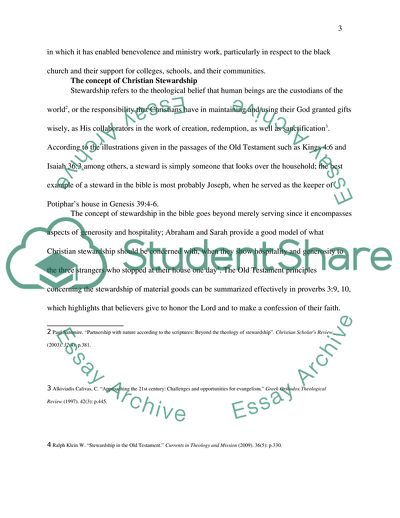Cite this document
(Giving to the Church: A Historical Look at Stewardship Report Example | Topics and Well Written Essays - 3500 words, n.d.)
Giving to the Church: A Historical Look at Stewardship Report Example | Topics and Well Written Essays - 3500 words. https://studentshare.org/religion-and-theology/1807266-giving-to-the-church-a-historical-look-at-stewardship
Giving to the Church: A Historical Look at Stewardship Report Example | Topics and Well Written Essays - 3500 words. https://studentshare.org/religion-and-theology/1807266-giving-to-the-church-a-historical-look-at-stewardship
(Giving to the Church: A Historical Look at Stewardship Report Example | Topics and Well Written Essays - 3500 Words)
Giving to the Church: A Historical Look at Stewardship Report Example | Topics and Well Written Essays - 3500 Words. https://studentshare.org/religion-and-theology/1807266-giving-to-the-church-a-historical-look-at-stewardship.
Giving to the Church: A Historical Look at Stewardship Report Example | Topics and Well Written Essays - 3500 Words. https://studentshare.org/religion-and-theology/1807266-giving-to-the-church-a-historical-look-at-stewardship.
“Giving to the Church: A Historical Look at Stewardship Report Example | Topics and Well Written Essays - 3500 Words”. https://studentshare.org/religion-and-theology/1807266-giving-to-the-church-a-historical-look-at-stewardship.


